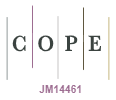Viviography: theoretical-methodological concept for narrative research
DOI:
https://doi.org/10.5585/eccos.n65.22184Keywords:
narratives, viviographic references, thematization, viviography.Abstract
The main objective of this article is to elucidate a potential insurgent theoretical-methodological concept in the context of narrative research, that is the result of a doctoral study in the field of Education. For that, the contributions of Fontoura, Josso, Cosson among others are considered, in order to promote for greater intelligibility of Viviography developed by Pinheiro. When investigates formal academic research, we seek to demonstrate the potential of references arising from experiences, the so-called viviographic references, which are founded on life experience, through narratives of memories inspired by the literary. Some methodological itineraries, such as Reading Circles and artistic-literary workshops including Vivisonography, which involves life narratives based on music, are essential for the development of Viviography. The Thematization proposed by Fontoura and the Viviographic Diary are also important methodologies in the construction of a narrative research with a viviographic nature. Therefore, we defend a research that values the contributions from collaborators, in order to represent them in a textually corporeal way. With this study we hope to open up a range of possibilities in narrative research that seek effective dialogue and emancipatory authorship processes.
Downloads
References
BARBIER, René. A pesquisa-ação. Brasília: Plano Editora, 2002.
BOSI, Ecléa. Memória e Sociedade: Lembranças de velhos. São Paulo: Companhia das Letras, 1994.
BOSI, Ecléa. Velhos Amigos. São Paulo: Ateliê Editorial, 2019.
CANDIDO, Antonio. O direito à Literatura. In: Vários Escritos, Ed. Duas Cidades/Ouro sobre Azul, 1995.
CONNELLY, F. Michael; CLANDININ, D. Jean. Stories of experience and narrative inquiry. Educational Research, Washington-DC, USA, v. 19, n. 5, p. 2-14, jun./jul.1990.
COSSON, Rildo. Círculos de leitura e letramento literário. São Paulo: Contexto, 2014.
DELORY-MOMBERGER, Christine. Formação e socialização: os ateliês biográficos de Projeto. Educação e Pesquisa, São Paulo, v.32, n.2, p. 359-371, maio/ago. 2006.
FONTOURA, Helena Amaral da. Tematização como proposta de análise de dados na pesquisa qualitativa. In: FONTOURA, Helena Amaral da (Org.) Formação de professores e diversidades culturais: múltiplos olhares em pesquisa. Niterói: Intertexto, p. 61-82, 2011.
GIBSON, Ana; FRANKLIN, Juliana. O que é que o contador tem? In: uma história e uma história e uma história: contos dos contos da tradição oral. Rio de Janeiro: Letra e Imagem, 2019.
JOSSO, Marie Christine. Experiências de vida e formação. Tradução de José Cláudio, Júlia Ferreira; revisão científica Maria da Conceição Passeggi, Marie Christine Josso. 2.ed. re. e ampl. Natal: EDUFRN; São Paulo: Paulus, 2010. (Coleção Pesquisa (auto)biográfica & Educação. Série Clássicos da Histórias de Vida)
PINHEIRO, Laís Lemos Silva Novo. Referências Viviográficas na EJA: narrativas de memórias literárias discentes. 2021. 163f. Tese (Doutorado em Educação - Processos Formativos e Desigualdades Sociais) - Faculdade de Formação de Professores, Universidade do Estado do Rio de Janeiro, São Gonçalo, 2021.
TODOROV, Tzvetan. A literatura em Perigo. Rio de Janeiro: DIFEL, 2009.
ZAPPONE, Mirian H.Y. Modelos de letramento literário e ensino da literatura: problemas e perspectivas. Teoria e Prática da Educação, v.11, n.1, p. 49-60, jan./abr. 2008.
Downloads
Published
How to Cite
Issue
Section
License
Copyright (c) 2023 Dos autores

This work is licensed under a Creative Commons Attribution-NonCommercial-ShareAlike 4.0 International License.
- Abstract 411
- PDF (Português (Brasil)) 563






